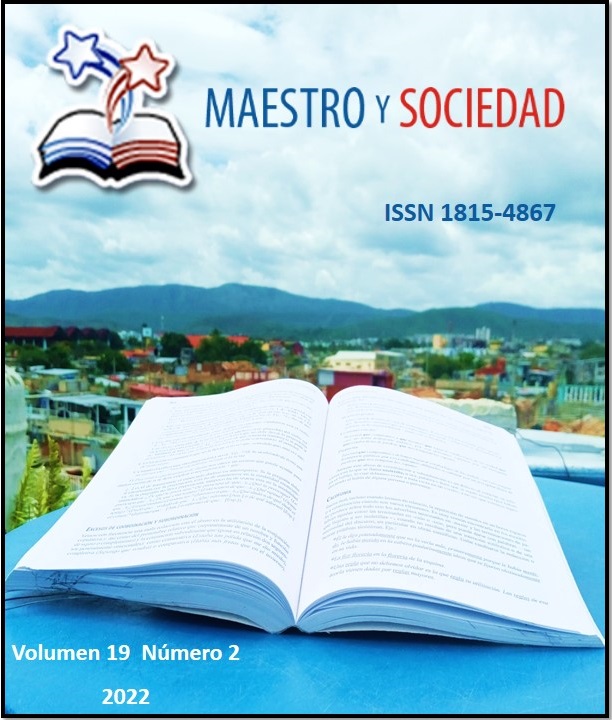Self-esteem, assertiveness and emotional intelligence: psychosocial competencies of future physical education teachers
Array
Keywords:
self-esteem, assertiveness, emotional intelligence, interpersonal competences, professional predispositionAbstract
The aim of the study was to diagnose the competencies of self-esteem, assertiveness and emotional intelligence among students who associate their future with the profession of physical education teacher in comparison with those who plan to work in other specialties linked to sports, and to explain the relationship between these competencies, professional predisposition and the student's gender. A total of 308 students participated in the study. To measure the level of each competency, three questionnaires were applied: the Rosenberg self-esteem scale in its unifactorial structure, the Assertive Behavior Self-Report and the Emotional Intelligence Scale-Short Form (TEQue-SF). The results showed that future physical education teachers have high levels of self-esteem, assertiveness and emotional intelligence and that the gender of the student is significant for the professional predisposition of physical education teacher, as well as the level of psychosocial competencies analyzed.
References
2. Brackett, M. A., & Salovey, P. (2006). Measuring emotional intelligence with the Mayer-Salovery-Caruso emotional intelligence test (MSCEIT). Psicothema, 18, 34-41.
3. Bueno-Pacheco, A., Lima-Castro, S., Arias-Medina, P., Peña-Contreras, E., Aguilar-Sizer, M., & Cabrera-Vélez, M. (2020). Estructura factorial, invarianza y propiedades psicométricas de la Escala de Autoestima de Rosenberg en el contexto ecuatoriano. Revista Iberoamericana de Diagnóstico y Evaluación Psicológica (RIDEP), 56(3), 87-100.
4. Castejón, F. J., Santos Pastor, M., & Cañadas, L. (2018). Desarrollo de competencias docentes en la Formación Inicial del Profesorado de Educación Física. Relación con los instrumentos de evaluación. Estudios pedagógicos (Valdivia), 44(2), 111-126.
5. Catagua, O. W. M. (2018). El desarrollo de competencias genéricas en el docente universitario. Dominio de las Ciencias, 4(3), 240-252.
6. Cazalla-Luna, N., Ortega-Álvarez, F., & Molero, D. (2015). Autoconcepto e inteligencia emocional de docentes en prácticas. Revista Electrónica De Investigación Y Docencia (REID), (14). Recuperado a partir de https://revistaselectronicas.ujaen.es/index.php/reid/article/view/2508
7. Dolev, N., & Leshem, S. (2016). Teachers' Emotional Intelligence: The Impact of Training. International Journal of Emotional Education, 8(1), 75-94.
8. Dolev, N., & Leshem, S. (2017). Developing emotional intelligence competence among teachers. Teacher development, 21(1), 21-39.
9. Granjo, M., Castro Silva, J., & Peixoto, F. (2021). Teacher identity: can ethical orientation be related to perceived competence, psychological needs satisfaction, commitment and global self-esteem? European Journal of Teacher Education, 44(2), 158-179.
10. Hart, W., Richardson, K., & Tortoriello, G. K. (2021). Revisiting the interactive effect of narcissism and self-esteem on responses to ego threat: Distinguishing between assertiveness and intent to harm. Journal of interpersonal violence, 36(7-8), 3662-3687.
11. Lee, H. L., & Han, Y. J. (2021). The Effect of Female University Students' Gender-Role Stereotype on Sexual Assertiveness: Mediating Effect of Self-Esteem. Journal of the Korea Academia-Industrial cooperation Society, 22(1), 454-460.
12. Livesey, P. V. (2017). Goleman-Boyatzis model of emotional intelligence for dealing with problems in project management. Construction Economics and Building, 17(1), 20-45.
13. Malvar Velasco, P. (2017). Estudio de la segregación horizontal y predisposición profesional. Diseño de una propuesta de acción: desegrad@s. Tesis de maestría. Universidad de Murcia. Recuperado de: https://212.128.20.127/bitstream/handle/10317/6000/tfm-mal-est.pdf?sequence=1&isAllowed=y
14. Martínez, V. (2016). Teacher Assertiveness in the Development of Students' Social Competence. Electronic Journal of Research in Educational Psychology, 14(2), 310-332.
15. Muñoz Argumero, G. S. (2021). El papel de la autoestima en el logro académico universitario. Una revisión sistemática. Tesis de grado. Universidad de La Laguna. Recuperado de: https://riull.ull.es/xmlui/bitstream/handle/915/25159/El%20papel%20de%20la%20autoestima%20en%20el%20logro%20academico%20universitario.%20Una%20revision%20sistematica..pdf?sequence=1
16. Romanowska-Tolloczko, A., Nowak, A., & Gnitecka, J. (2015). Level of self-respect and assertiveness skills and teachers’educational competences. Pedagogics, psychology, medical-biological problems of physical training and sports, 19(5), 67-70.
17. Şahin, H. (2017). Emotional intelligence and self-esteem as predictors of teacher self-efficacy. Educational Research and Reviews, 12(22), 1107-1111.
18. Tacca, D., Tacca, A., & Cuarez, R. (2020). Inteligencia emocional del docente y satisfacción académica del estudiante universitario. Revista Digital de Investigación en Docencia Universitaria, 14(1), e1085. https://doi.org/10.19083/ ridu.2020.887
19. Ventura-León, J., Caycho-Rodriguez, T., Barboza-Palomino, M., & Salas, G. (2018). Evidencias psicométricas de la escala de autoestima de Rosenberg en adolescentes limeños. Revista Interamericana de Psicología/Interamerican Journal of Psychology (IJP), 52(1), 44-60.
Published
How to Cite
Issue
Section
License
This journal provides immediate open access to its content, based on the principle that offering the public free access to research helps a greater global exchange of knowledge. Each author is responsible for the content of each of their articles.



























 Universidad de Oriente
Universidad de Oriente 